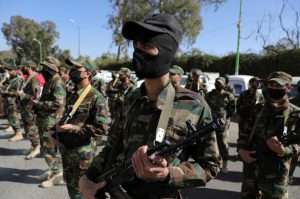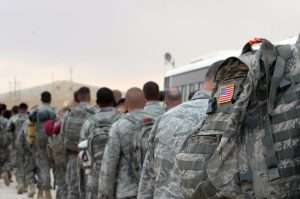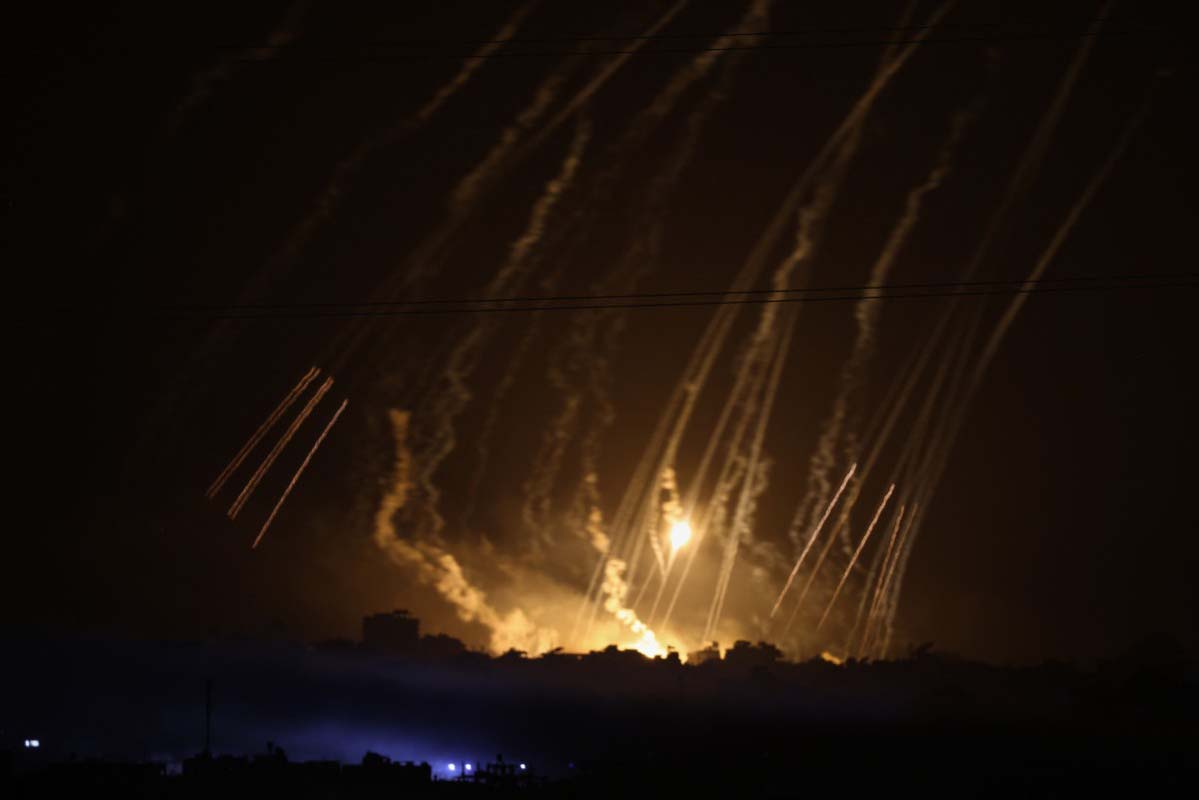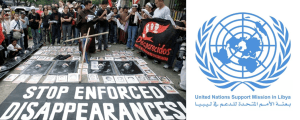The Gulf’s China pivot isn’t a matter of “if,” but “when”

China’s grandiose military parade might have been about showing off its new weapons, but it was also about showing off a new world order. For the Gulf States, that shift requires careful balance between old allies and rising powers, according to Sami Hamdi, one of the region’s top analysts, in an interview with Maghrebi.
On September 3rd, President Xi Jinping announced to 50,000 spectators at Tiananmen Square that when “faced with the choice of peace or war, dialogue or confrontation, win-win or zero-sum,” the Chinese people “firmly stand on the right side of history.” The Guests of honor, united for the first time, were the pariahs of the Western world: Russia’s Vladimir Putin, Iran’s Masoud Pezeshkian, and North Korea’s Kim Jong Un.
The message was clear: as America’s grip on the world order falters, China’s rise is “unstoppable.”
Yet just in May, the Gulf Arabs spent trillions of dollars cosying up to their American allies during US President Donald Trump’s tour through Riyadh, Doha, and Abu Dhabi. The Saudis made history with a $142 billion defense deal, a reminder that, despite decades of declinist warnings, the Gulf leaders still believe their security lies with Washington.

“There’s still a concern…that if the U.S. really wants to allow an all-out campaign of brutality, then they are able to bring Europe in line to allow that brutality to take place,” says Sami Hamdi, the Editor-in-Chief of the International Interest. “Gaza is a testament that if the U.S really wants to hurt you, it is still capable of using brute force.”
At the same time, the bloodlust of American voters is declining. Social media has exposed an undeniable US-sponsored holocaust in Gaza that has disturbed even staunch Zionists. Even Trump, when asked to verify Netanyahu’s claim in July that it was a “bold-faced lie” to say Israel was starving Gaza, admitted: “I don’t know… those children look very hungry… that’s real starvation stuff.”
Combined with the failures of Vietnam, Iraq, and Afghanistan, Americans have little appetite for war. On June 22nd, when the US intervened in Israel’s attack on Iran, dropping bunker buster bombs on key nuclear sites, an Economist poll found that only 19% of Trump voters supported military involvement.
“Gaza is a testament that if the U.S really wants to hurt you, it is still capable of using brute force.”
Still, between 40,000 and 50,000 troops are currently stationed across at least 19 sites in the Middle East. Whether it has the appetite for it or not, America is the only country that can fight major wars thousands of miles away from its shores.
“If they turn towards China,” says Hamdi, “It is U.S. military bases and U.S. troops that can oust them from power and plunge their countries into war…There are no Chinese military bases to be seen. There are no Chinese troops.”
Beijing also only supplies 2% of the region’s weapons, and aside from incurring America’s wrath, a wholesale shift to Chinese weapons would be impractical, considering their incompatibility with the Gulf’s American defense systems. Although China’s military might is clear, a shift would come with both financial and political costs.
China, too, lacks the will and the wherewithal to dominate the region’s security. While its so-called “win-win” strategy emphasizes the promotion of state-led investment, which sits well with Gulf states, it also prioritizes non-interference. When Israel struck Iran on July 13th, claiming its nuclear programme threatened Tel Aviv’s survival, the silence from Tehran’s supposed allies affirmed to the Gulf that neither China nor Russia could be counted on as security guarantors. Tehran’s fate – shunned by the West and abandoned by its partners— reflects the Gulf Cooperation Council (GCC )’s deepest fears.
Both China and the Gulf states are aware of each other’s standing. In 2022, amid a spat with Washington, Riyadh hosted a China-Arab States Summit, which China’s Global Times, a state-run tabloid, touted as a “milestone in the history of China-Arab countries relations”. But pageantry aside, of the 40 agreements signed, most were memoranda of understanding, not actual deals.
Neither side was willing to affirm security guarantees that would offend America.
“There’s still a concern amongst Gulf states that although the future is towards the East, towards China, India, and Russia, that future is not here yet… As a result, China’s policy is almost ‘come to me when you’re ready’, and the Gulf states are saying,’ Well, show us what the New World Order looks like’” explains Hamdi. “Neither is willing to take that step as long as Uncle Sam is breathing down their necks.”
“The question being asked is, how can I buy Chinese weaponry in a way that doesn’t bring the Americans down on me like a ton of bricks?”
Once the architects of petro-state bling, Saudi Arabia and the UAE have pushed in the last decade to diversify their oil-based economies with “Vision 2030” and the “UAE Centennial 2071.” Both modernisation campaigns rely heavily on Chinese tech. Huawei, for example, is the backbone of the Saudi Crown Prince, Mohammed Bin Salman’s treasured “smart cities” plan.
Alibaba Cloud and Huawei Cloud also run data centers in Abu Dhabi, Dubai, Riyadh, and beyond, which gives the Gulf an alternative to Amazon AWS or Microsoft Azure, and more importantly, reprieve from U.S. oversight. These arms of China’s “Digital Silk Road” policy have drawn the gulf into Beijing’s technological orbit, giving it greater influence in shaping the region’s future.
Crucially, it gives China a greater say in data governance and cybersecurity, which could have lasting implications for regional surveillance norms and tech dependency.
Energy is still the bedrock of China’s engagement, with over 40% of its crude oil imports coming from the region. But increasingly, China is looking to the Gulf as a partner in clean energy, especially considering its long-flexed manufacturing capacity of solar panels, wind turbines, and batteries. For the Emiratis and the Saudi’s, this aligns well with projects like the UAE’s Net Zero 2050 strategy or the clean energy component of Vision 2030.
Though these ventures set the stage for China to be more than a fair-weather friend, the region has thus far hesitated to carry them into the military realm. In 2022, under former US President Joe Biden, the Financial Action Task Force unexpectedly added the UAE to its money laundering “grey list” just as Abu Dhabi was ramping up its investments in Chinese hardware.
Washington’s warning was that doing business with the Chinese would cost the UAE the blind eye and preferential treatment it had previously enjoyed. A blow to its business hubs in Dubai, the UAE decided, was not worth the risk and swiftly rolled back some of its agreements.
But as the Global South grows more brazen in its defiance, the GCC states, too, are pushing their limits with China.
“The question being asked is, how can I buy Chinese weaponry in a way that doesn’t bring the Americans down on me like a ton of bricks?” explains Hamdi, “I think that’s the discussion taking place today. It’s not, ‘should I remain with the U.S. over China’; everybody in the Gulf believes we need to move towards China… the discussion is, how far can I push the limits?”
As the American public grows war weary and U.S. foreign policy looks increasingly inward, those limits continue to expand. With the focus now “mainly on economy… on trying to wind down the war in Ukraine…on trying to find some sort of working relationship, be it with the Chinese or the Indians or the like,” the Gulf’s window of opportunity with China might be widening.
Reuters/ the Guardian/ the Economist/ Council on Foreign Relations/ U.ae/ Center on Global Energy Policy/ Saudi Vision 2030/ Maghrebi
Want to chase the pulse of North Africa?
Subscribe to receive our FREE weekly PDF magazine













